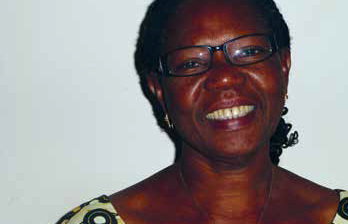In today’s globalised world it is often hard for small-scale producers to access such markets on equitable terms. Development agencies need to make sure that the concerns of these farmers are taken into account in national policies, argues Fatou Batta.

Most family farmers produce both for their own consumption and for local and regional markets. However, in today’s globalised world it is often hard for small-scale producers to access such markets on equitable terms.
Many development organisations are involved in looking for ways to increase agricultural production and improve the food security of small-scale farmers. But, to what extent do these agencies and political leaders take into account the need to create conditions under which small-scale producers receive a fair share of the benefits of this increase? How can they help strengthen the capacity of small-scale producers to access local markets and to sell their products and make a profit? It is becoming increasingly important to explore the opportunities for farmers to increase their productivity and generate an income while also still feeding their families.
The eastern region of my country, Burkina Faso, suffers from recurrent food insecurity, and poverty levels are among the highest in the country. Yet, this region has a significant economic potential. Population growth and the expansion of the urban areas mean an increase in demand for food. Furthermore, people in urban areas are adopting eating habits that provide exciting new market opportunities for producers and processors.
Farmers are starting to develop networking strategies to create better market conditions for their products, and sell them at profitable prices. One example is the women farmers’ group in the town of Gayéri. Realising that to improve their livelihoods they needed to win a share of the newly emerging but highly competitive markets, they established a communication network to share information about the availability and prices of products in different parts of the country. Through cell phones, they communicate with women’s groups in other parts of the country.
This initiative has reduced the influence of middlemen, who often have more resources and negotiation capacity than the producers. The women report that this innovative networking system allows them to sell their products at reasonable prices, which was not previously the case.
The agility and strategic insight of these women are striking. But at the same time, organisations and networks of small-scale farmers still face significant challenges. It is important that development agencies engage in advocacy to ensure that the concerns of such farmers are taken into account in national policies.
Local, national and regional markets need to be properly regulated, and the related value chains must be well managed if producers are to receive better prices for their products and ensure the well-being of their families. If we are seeking to encourage production and achieve food security, this is where the emphasis must lie.
Fatou Batta

